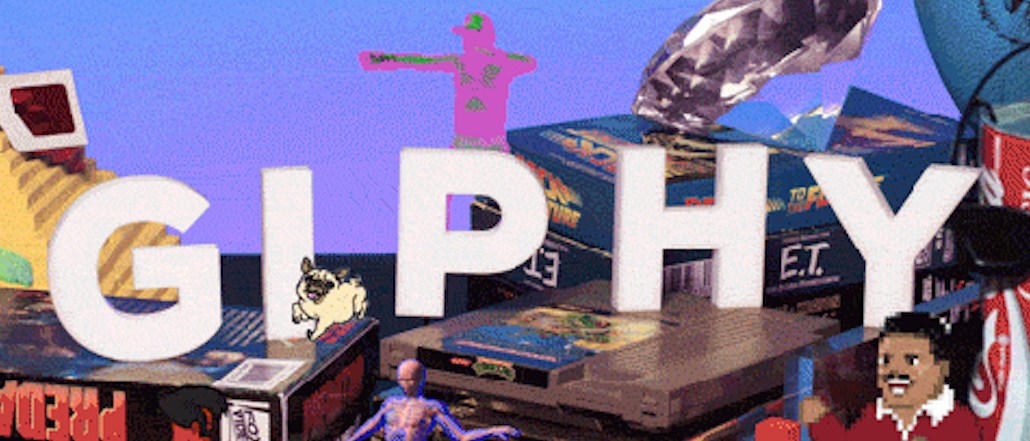Secure your place at the Digiday Media Buying Summit in Nashville, March 2-4

Giphy started life as a search engine for GIFs, but now it’s looking to become a real-time branded-content platform.
Now, the awards ceremonies are using it. Ahead of the gossip sites, event organizers can upload viral content to Giphy, which is pulled in by Facebook’s and Twitter’s GIF search bars. The Golden Globes, attracted 50 million views for uploading this brief encounter between Lady Gaga and Leonardo Dicaprio. Others using Giphy include the Billboard Awards, the Teen Choice Awards and the VMAs. The official GIFs are prioritized when people search on Giphy or one of its distribution partners like Twitter.
Fashion retailer Banana Republic created behind-the-scenes content at February’s New York Fashion Week. Last month, another fashion brand, Hunter Boots, partnered with the platform over Glastonbury weekend to let Giphy users add its branded filters to their short-form videos.
Check out the @hunterboots @giphy cam filters. Festival ready! #giphycam #festival #hunterboots pic.twitter.com/IhmxRwDeTA
— Kate Costello (@KateCostello89) June 22, 2016
The collaboration generated over 73,000 engagements inside the Giphy mobile app. On Hunter’s own channels, its best-performing GIF (a pair of muddy boots) amassed 10,100 views.
“GIFs are almost a universal language — a way of sharing emotion socially,” said Hunter’s creative director, Alasdhair Willis. “We wanted to devise a campaign that enabled our customer to engage in the festival conversation, in a fun and spirited way — whether they were actually attending a festival or not,” he added.
“We’re morphing from a media platform into a hub for real-time content. The real centerpiece of where GIF content on the web gets distributed to,” said Simon Gibson, Giphy’s marketing director.
Giphy’s healthy traffic — according to comScore, it had 16 million U.S. uniques in June — is a big pull for brands. But the fact that its GIF search is plugged into just about every social platform out there gives its content an even bigger reach.
“We’re seeing more and more brands migrate to utilizing this format,” Gibson said. “It’s a snowball effect when those behemoths embrace it in an obvious way.”
While Giphy offers brands various free tools, the launch of Giphy Studios in March marked its foray into paid-for content (and, consequently, revenue). Labelled as the first GIF-only agency, the 20-person Los Angeles team repurposes old video assets into GIFs and partners brands with members of Giphy’s artist community.
Subway and KitKat have already run campaigns with Giphy Studios. And while its content has a U.S. bent, thanks to the studio’s location, it’s now expanding its custom tools abroad to brands like U.K. bank Halifax, which had 5 million views and shares on its recent GIF campaign.
“The idea is that we’re closing the loop on owning and connecting every part of the GIF experience,” Gibson said.
But the platform is built on the success of its giant user base — something that isn’t always easy to police. Gibson says there are moderation controls in place. However, copyright and inappropriate content does, of course, slip through in the half trillion GIFs the platform has served since its inception.
“We’re very cognizant about making it safe space for brands, while other platforms are focused on the First Amendment,” he said.
More in Media

Media Briefing: Turning scraped content into paid assets — Amazon and Microsoft build AI marketplaces
Amazon plans an AI content marketplace to join Microsoft’s efforts and pay publishers — but it relies on AI com stop scraping for free.

Overheard at the Digiday AI Marketing Strategies event
Marketers, brands, and tech companies chat in-person at Digiday’s AI Marketing Strategies event about internal friction, how best to use AI tools, and more.

Digiday+ Research: Dow Jones, Business Insider and other publishers on AI-driven search
This report explores how publishers are navigating search as AI reshapes how people access information and how publishers monetize content.





